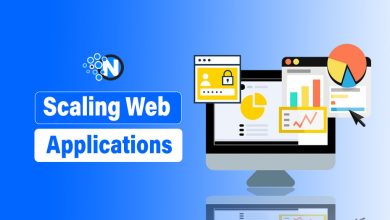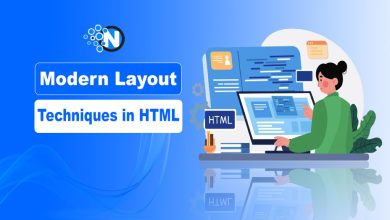Top 10 Best CMS Platforms for Easy Website Building in 2025

What will be your feelings when you have just sketched your dream website on paper and are able to bring it to the web within hours? Obviously, you will be speechless. That’s the power and reality that the best CMS platforms offer.
In 2025, they are no longer clunky back-end tools. They have become creative partners who let you focus on ideas instead of technical hurdles. Whether you are a blogger aiming to grow an audience, an entrepreneur building an online store, or a designer craving freedom, the right CMS can transform your vision into reality.
In this blog post, I will take you through the top 10 best CMS platforms for 2025, explain what makes them stand out, and share insights that can help you make the best choice for your needs.
What is a CMS?
A content management system (CMS) is software that allows you to build, manage, and publish content on your website without technical expertise.
Instead of manually coding every element, you can simply use a CMS dashboard to add text, images, videos, or even eCommerce products. Whether you are a blogger, business owner, or digital marketer, using a CMS can help you save time and scale your online presence efficiently.
Top 10 Best CMS Platforms for Easy Website Building in 2025
Below, I will break down the top 10 best CMS platforms for easy website building, share what makes each unique, and highlight their best features so you can find the perfect fit.

1. WordPress.org
WordPress.org continues to be the most popular CMS platform in 2025. It powers millions of websites, from simple blogs to large eCommerce stores. What makes WordPress so attractive is its flexibility and freedom. Since it is open-source, you can customize everything from themes to plugins. It is perfect for all content types, including text, graphics, audio and video etc.
Whether you want to create a blog, portfolio, or business site, WordPress headless CMS gives you complete control. It is also SEO-friendly, which makes it a favorite for bloggers and marketers. If scalability matters, WordPress can grow with your business easily.
Key Features of WordPress.org
- Thousands of free and premium themes
- Over 60,000 plugins for added functionality
- SEO-friendly structure with plugins like Yoast SEO
- Full control over hosting and customization
- Strong community support
Pricing
- Personal: $4 per month
- Premium: $8 per month
- Business: $25 per month
- Commerce: $45 per month
- Enterprise: Custom Quotes

2. Wix
Wix is perfect for beginners who want to create a professional-looking website without any coding knowledge. It uses an intuitive drag-and-drop builder, making the design process simple and enjoyable. Wix comes with hundreds of templates that are already optimized for mobile, so your website will look good on any device.
Beyond multiple design options, Wix also provides built-in marketing tools, eCommerce options, and search engine optimization support. For small businesses and personal brands that want to get online quickly, Wix is a reliable and affordable choice.
Key Features of Wix
- Drag-and-drop website builder
- Mobile-optimized templates
- Built-in SEO and marketing tools
- Wix App Market for extra features
- Secure and reliable hosting included
Pricing
- Light: $17 per month
- Core: $29 per month
- Business: $39 per month
- Business Elite: $159 per month

3. Squarespace
Squarespace is known for its elegant and modern templates that make websites stand out. It’s a great CMS for creatives, small businesses, and entrepreneurs who want a visually appealing site without hiring a designer. Everything is built-in, from hosting to SEO tools, so you don’t have to worry about managing separate services. It is great for all content types, from text to HD videos.
Additionaly, Squarespace also supports eCommerce, which makes it useful for selling products online. Its all-in-one system ensures smooth performance and professional results and makes it especially popular among photographers, artists, and startups.
Key Features of Squarespace
- Professionally designed templates
- Built-in blogging and eCommerce tools
- Responsive design options for all devices
- All-in-one platform with hosting and security
- Easy integration with marketing tools
Pricing
- Personal: $16 per month
- Business: $23 per month
- Commerce Basic: $28 per month
- Commerce Advanced: $52 per month

4. Joomla
Joomla is a powerful CMS that balances flexibility with ease of use. It is ideal for developers and businesses that need advanced features without building everything from scratch. Joomla offers robust content management capabilities, multilingual support, and strong security.
While it has a steeper learning curve compared to Wix or Squarespace, it rewards users with greater customization. If you need a CMS for a community-based site, membership portal, or business website with complex features, Joomla is a solid choice in 2025.
Key Features of Joomla
- Multilingual support
- Ease of use
- Flexible content management structure
- Strong security features
- Extensions for eCommerce and community sites
- Active developer community
Pricing
Joomla is an open-source content management platform which means you can access and download it for free.

5. Drupal
Drupal is a content management system designed for organizations and businesses with complex needs. It is highly customizable, but it does require technical expertise to set up and manage. What sets Drupal apart is its scalability and security. That’s why it is a favorite for government websites, educational institutions, and large enterprises.
With thousands of modules available, you can add nearly any feature you want. If your website requires advanced user permissions, heavy traffic handling, or enterprise-level security, Drupal is one of the best choices.
Key Features of Drupal
- Highly customizable for developers
- Advanced user permissions
- Great for large, complex websites
- Strong security and stability
- Large library of modules and themes
Pricing
Drupal CMS is also free, similar to Joomla. However, you should check the costs asscoaited with hosting, security, and other aspects.

6. Shopify
Shopify is one of the top enterprise CMS platforms for eCommerce businesses in 2025. It simplifies online selling by providing everything in one place, from product listings to payment gateways. Shopify is designed for entrepreneurs who want to launch and scale their online stores quickly.
It offers beautiful, mobile-friendly themes and marketing tools to help you attract customers. With its reliable hosting, fast checkout process, and strong customer support, Shopify remains the top choice for small to medium-sized online stores. It is easy to use and highly reliable.
Key Features of Shopify
- Easy product and inventory management
- Multiple payment gateways
- SEO and marketing features included
- Mobile-friendly themes
- Reliable customer support
Pricing
- Basic: $19 per month
- Grow: $49 per month
- Advanced: $299 per month
- Plus: $2,300 per month

7. Magento (Adobe Commerce)
Magento, now branded as Adobe Commerce, is a CMS tailored for large-scale eCommerce operations. Unlike Shopify, which focuses on simplicity, Magento provides advanced tools for complex and high-volume stores. It allows multi-store management, global selling, and detailed product customization.
While it requires technical knowledge, its flexibility and scalability are unmatched. Major enterprises that need full control over their online business rely on Magento for its ability to handle thousands of products and support millions of transactions seamlessly.
Key Features of Magento
- Highly scalable for large stores
- Advanced product management tools
- Multi-store functionality
- SEO and mobile-friendly design
- Integration with third-party tools
Pricing
You have to send custom quotes to get the pricing details according to your demands and preferences.

8. Blogger
Blogger is a free CMS from Google, designed mainly for personal and hobby blogging. It is extremely easy to set up, making it a great starting point for beginners. Since it integrates with Google’s ecosystem, you can use AdSense to monetize your blog directly.
However, customization options are limited compared to WordPress. Blogger works best if you just want a simple platform to share your ideas, stories, or experiences without worrying about hosting and technical aspects. It’s free, secure, and dependable.
Key Features of Blogger
- Free hosting with Google
- Easy-to-use blogging dashboard
- Integration with Google AdSense
- Mobile-responsive templates
- Reliable security and support
Pricing
Blogger is a free Content Management System (CMS) with no associated costs for hosting, SSL certificates, or templates.

9. Ghost
Ghost is a content management system built with professional publishing in mind. Unlike traditional CMS platforms, Ghost focuses on speed, simplicity, and a distraction-free writing experience. It is perfect for bloggers, writers, and digital publishers who want a clean platform optimized for content creation.
Further, Ghost includes built-in SEO tools and membership features and allows creators to monetize through subscriptions. Its lightweight structure makes it extremely fast compared to heavier CMSs, which gives your audience a smoother experience. Ghost headless CMS is ideal for serious content creators.
Key Features of Ghost
- Fast and lightweight performance
- Built-in SEO optimization
- Membership and subscription features
- Simple and distraction-free editor
- Flexible customization options
Pricing
- Starter: $15 per month
- Publisher: $29 per month
- Business: $199 per month
- Custom: Flexible pricing

10. Webflow
Webflow is a modern CMS that blends visual design with powerful customization. It gives designers full creative control without requiring advanced coding. Unlike simple drag-and-drop builders, Webflow offers professional-grade design tools and makes it appealing to agencies and freelancers.
It also includes hosting, eCommerce functionality, and SEO features. In short, it is a complete solution. Webflow stands out for those who want freedom in design while still benefiting from CMS ease. If creativity and control matter most, Webflow is a great option in 2025.
Key Features of Webflow
- Visual drag-and-drop editor
- Advanced design customization
- Built-in hosting and security
- SEO and CMS features integrated
- ECommerce capabilities included
Pricing
- Starter: Free
- Basic: $14 per month
- CMS: $23 per month
- Business: $39 per month

Final Thoughts
These are the details about the top 10 best CMS platforms for easy website building in 2025.
Choosing the best CMS platform in 2025 depends on your goals, skills, type of content creation, and the type of website you want to create. WordPress remains the most versatile option, but alternatives like Shopify, Wix, Squarespace, and Ghost provide unique benefits that cater to different needs.
Whether you are starting a blog, launching a business website, or managing a large online store, there is a CMS that fits perfectly. When you explore the top ten platforms I have shared, you can make an informed decision and start building your dream website with confidence.




